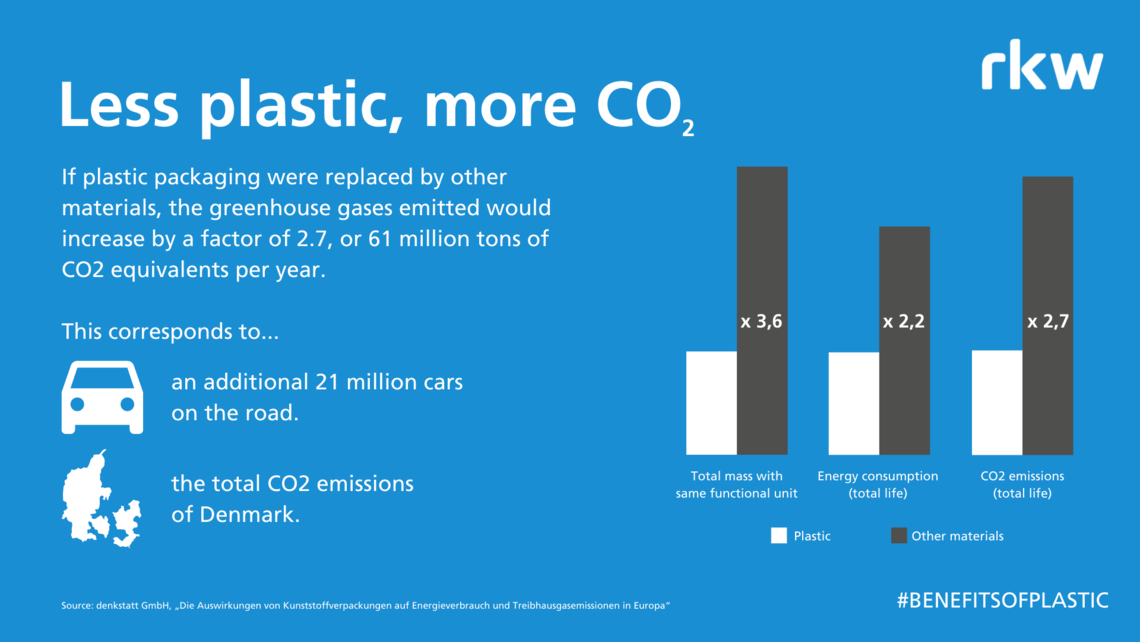Misconceptions about plastic packaging are omnipresent in public discourse. Plastic and plastic packaging are often viewed in a one-sided way. With our campaign on social media, "Benefits of Plastic," we took a closer look at these misconceptions and demonstrated the advantages of plastic and various examples of its use in a fact-based manner.
Plastic packaging - contrary to widespread misconceptions - plays an important role when it comes to protecting food from damage, contamination or loss of quality with its numerous protective functions. According to the Food and Agriculture Organization (FAO) of the United Nations, food waste is the third largest cause of greenhouse gas emissions.
Plastic packaging can therefore help to counteract wastage by providing adequate product protection. Plastic packaging provides customers with high-quality goods, reduces food and product waste, and prevents resources from being wasted unnecessarily.
Less plastic, more CO2 emissions
The belief that other packaging materials are per se better and more sustainable than plastic packaging is widespread. A study by denkstatt shows: Replacing plastic packaging consumes significantly more energy and leads to increased CO2 emissions.
Correct waste separation enables recycling
If you want to make a contribution to climate protection and conserve resources, you should separate waste correctly. This is the only way to keep valuable resources such as plastic packaging in a recycling loop and to reprocess them at the end of their life cycle. In Germany, disposal via the yellow bag or yellow garbage can ensures that plastic packaging is given a new lease of life and, after sorting, is processed into so-called recyclates, recycled plastics.
Circular economy for plastics: foundation for climate-neutral use
Natural resources form the basis for a functioning society. It is therefore all the more important to use resources responsibly. The circular economy therefore aims to use products and raw materials for as long as possible; with regard to plastics, it also forms the foundation for sustainable and climate-neutral use.
The RKW Group is committed to its responsibility to give plastic products a sustainable perspective. We are working to further expand the circular economy for this indispensable raw material. To this end, we are guided by the guiding principle "Reduce, Reuse, Recycle".
